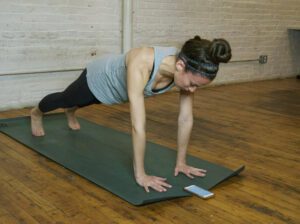Let’s all start with a visual exercise:
Imagine you’ve trained for months and today is the day that the hours of sweat are on display to you, your coach, parents and friends; maybe you are even representing a team or school. Before the whistle sounds, before you step to the line: what emotions are you feeling?
As a cross country and track athlete, stepping to the line always meant this was the moment I could make or break my goals and dreams. Many times, the pressure of those moments led to subpar performances. However, I remember times of record-setting outcomes with victorious post-race celebrations. Now that I am the coach, I see these same situations arise with the athletes I train. I notice their same anxiety, stress and excitement for the event ahead of them. To keep them hitting their peak and growing from their race experiences, I remind them of a few things proven in the area of exercise science. Check out this list and see if you find any takeaways!
Preparation: I will say it a million times, preparation is key! The hours of training will always be the deciding factor if an athlete is ready for the challenge ahead. This includes equipment, packing, nutrition, timing and planning as well. Fear and anxiety are usually factors out of our control (What will the wind be? Will another athlete trip me?). Laying out your uniform or packing your lunch and shoes the night before can set you up for a relaxing night sleep and a successful morning. Take care of as many of these obstacles the night before and plan your itinerary for the following day. Eliminating as many factors that you can control should aid in reducing wasteful worry and allow you to focus on what matters.
Positive Psychology: “I think I can, I think I can” – what worked for The Little Engine That Could also works for us humans. In training, we praise the connection of our mind to our muscles. I ask an athlete to drive their knees higher and their brain tells their body to complete the task. It is the same with general belief concepts. If an athlete says they can’t run that fast, guess what: their body follows its command. Instead, if the mind truly believes that in training they ran an 8-minute mile for two repeats, then the mind knows they can run a 7:45 mile pace in a one mile race. Preparation of course is key; however, developing a positive mantra or phrase to use during practice that will be comforting before and during races has also proven effective. Think of a present “I am” statement such as, “I am strong”. The mental power of a positive mantra will only aid in driving the body toward a strong performance.
Visualizations: Going along with the power of the mind over the body, next we look at a technique used by professional athletes. Imagery or visualizing the positive outcome the athlete desires is a powerful way to relieve jitters and create confidence. The night before or the day of a big contest, take five minutes and a few deep breaths to relax your mind and imagine the sights, sounds, smells and feelings of a victorious scenario, and the more realistic the better. This resets the brain to looking toward that outcome verse the fear of wondering what the outcome will be.
Acceptance: I love the phrase, “The hay is in the barn”. This means after months and months of training, pre-race time should be spent relaxing and letting the body store the energy it will need mentally and physically to compete. No additional training the day of or before the race is going to MAKE your performance. Additionally, things done day of or before the race can harm performance (a pop the day of a big race, going for a hard run the day before, etc.). Accept that your hard work has prepared you for this task and accept that you can only do our best on that given day.
I hope these tips were helpful. I highly recommend my athletes find a ritual they can repeat before hard practices with things that work to focus their energy, and apply that same ritual to race day. Each athlete is unique; one may find solace in music while the other needs absolute silence prior to their event. The athlete knows what works for them best. As a coach, reflecting on their best practices and being empathetic to their stress helps them to know they have a partner as they toe the line.
Coach Ashley is the founder of Grounded Pada Health. She coaches athlete in sports performance, health coaching and yoga to strive for improved health, growth and self-awareness.
How useful was this post?
Click on a star to rate it!
Average rating 0 / 5. Vote count: 0
No votes so far! Be the first to rate this post.



